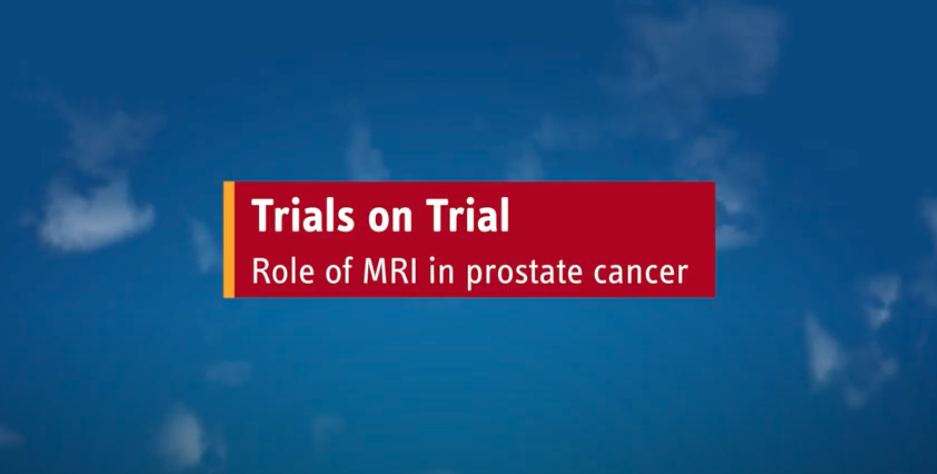Nivolumab is approved for patients with VEGFR TKI-resistant RCC and the nivolumab/ipilimumab combination is approved for treatment-naïve patients with IMDC intermediate-risk and poor-risk RCC.
Dr Michael Atkins (Georgetown Lombardi Comprehensive Cancer Center, DC, USA) presented the results of the phase 2 HCRN GU16-260 trial (NCT03117309), which evaluated the efficacy and toxicity of nivolumab monotherapy in treatment-naïve RCC as well as the efficacy of nivolumab/ipilimumab salvage in patients with tumours resistant to initial nivolumab monotherapy [1]. Eligible patients with treatment-naïve RCC started nivolumab monotherapy until progressive disease, toxicity, or completion of 96 weeks of treatment (Part A). Patients with progressive disease prior to, or stable disease at 48 weeks were potentially eligible to receive salvage nivolumab/ipilimumab (4 cycles) followed by nivolumab maintenance (Part B).
A total of 123 treatment-naïve mRCC patients (28% favourable risk, 62% intermediate risk, 10% poor risk) started monotherapy with nivolumab. At a median follow-up of 27.7 months, 35 patients had gone on to Part B. Of the remaining 88 patients, 26 were still in response and 62 did not go on to Part B for various reasons.
Objective response rate (ORR) in Part A was 34.1% (favourable risk 57.1%, intermediate risk 23.6%, and poor risk 33.3%). ORR by PD-L1 status was 26.9% in PD-L1-negative patients, 50% in PD-L1 range 1-20%, and 75% in PD-L1 >20% (trend test P-value 0.002). The median duration of response to nivolumab monotherapy was 27.6 months with 26/42 responders including 17/20 (85%) with favourable risk patients remaining progression-free at data lock. Median PFS was 8.3 months (32.5 months for favourable risk, 5.4 months for intermediate risk, and 5.2 months for poor risk patients). One-year PFS rate was 75.0% for PD-L1 >20% versus 34.6% for PD-L1-negative patients (P=0.05). ORR in Part B was 11.4% (favourable risk 33.10%, intermediate risk 7.4%, and poor risk 0%).
Dr Atkins concluded that “nivolumab monotherapy represents an alternative first-line treatment option, particularly in ipilimumab or TKI averse patients, and maybe for the patients with a stable or managed auto-immune condition. Efficacy appears to correlate with tumour PD-L1 status. Salvage treatment with nivolumab/ipilimumab is frequently not feasible and of limited benefit.”
- Atkins MB, et al. Phase II study of nivolumab and salvage nivolumab + ipilimumab in treatment-naïve patients (pts) with advanced clear cell renal cell (HCRN GU16-260-Cohort A): Final report. Abstract 288, ASCO GU 2022, 17–19 February.
Copyright ©2022 Medicom Medical Publishers
Posted on
Previous Article
« HPV-positive and HPV-negative penile squamous cell carcinoma are molecularly distinct tumours Next Article
Differential patterns of molecular alterations among sites of metastasis in RCC »
« HPV-positive and HPV-negative penile squamous cell carcinoma are molecularly distinct tumours Next Article
Differential patterns of molecular alterations among sites of metastasis in RCC »
Table of Contents: ASCO GU 2022
Featured articles
Prostate Cancer
First-line treatment with olaparib significantly improves PFS in mCRPC
First-line treatment with niraparib significantly improves PFS in HRR-mutated mCRPC
Darolutamide improves OS in mHSPC
Continued enzalutamide plus docetaxel offers clinical benefit for mCRPC patients who progress on enzalutamide
Radiohybrid PSMA PET imaging has favourable detection rate for prostate cancer recurrence
PSMA PET is a predictive biomarker in mCRPC progressing after docetaxel
Artificial intelligence improves prediction of long-term outcomes
Significant tumour response to neoadjuvant therapy in high-risk non-metastatic prostate cancer
Addition of abiraterone to ADT/docetaxel does not increase bone loss
Bavdegalutamide, a novel androgen receptor degrader, demonstrates clinical activity
Urothelial Carcinoma
No benefit of olaparib in previously untreated, platinum-ineligible, metastatic urothelial carcinoma
Rucaparib maintenance therapy extends PFS in platinum-responsive metastatic urothelial carcinoma
Positive efficacy and safety of N-803 plus BCG infusion in BCG-unresponsive NMIBC
Adding lenvatinib to pembrolizumab does not improve survival in advanced urothelial carcinoma
Maintenance niraparib fails to improve PFS in advanced urothelial cancer
First-line avelumab shows clinical activity in advanced urothelial carcinoma
Favourable pathologic response rate with neoadjuvant chemotherapy in high-risk upper tract urothelial carcinoma
Second-line nivolumab/ipilimumab boost improves ORR in metastatic urothelial carcinoma
Sacituzumab govitecan effective in platinum-refractory metastatic urothelial cancer
Neoadjuvant enfortumab vedotin promising in MIBC ineligible for cisplatin
Renal Cell Carcinoma
High-risk early RCC may benefit from neoadjuvant avelumab plus axitinib
DFS benefits with adjuvant pembrolizumab in RCC persist with longer follow-up
Biomarkers predict response to immune nivolumab (± ipilimumab) in advanced RCC
Combined nivolumab/axitinib treatment elicits good response in metastatic RCC
Folliculin mutations not associated with sporadic chromophobe RCC
Differential patterns of molecular alterations among sites of metastasis in RCC
Nivolumab monotherapy represents an alternative first-line treatment option for treatment-naïve mRCC
Penile & Testicular Cancer
HPV-positive and HPV-negative penile squamous cell carcinoma are molecularly distinct tumours
Atezolizumab does not improve survival in advanced penile cancer
Biomarkers to distinguish necrosis from teratoma before pcRPLND in testicular cancer
© 2024 Medicom Medical Publishers. All rights reserved. Terms and Conditions | Privacy Policy


